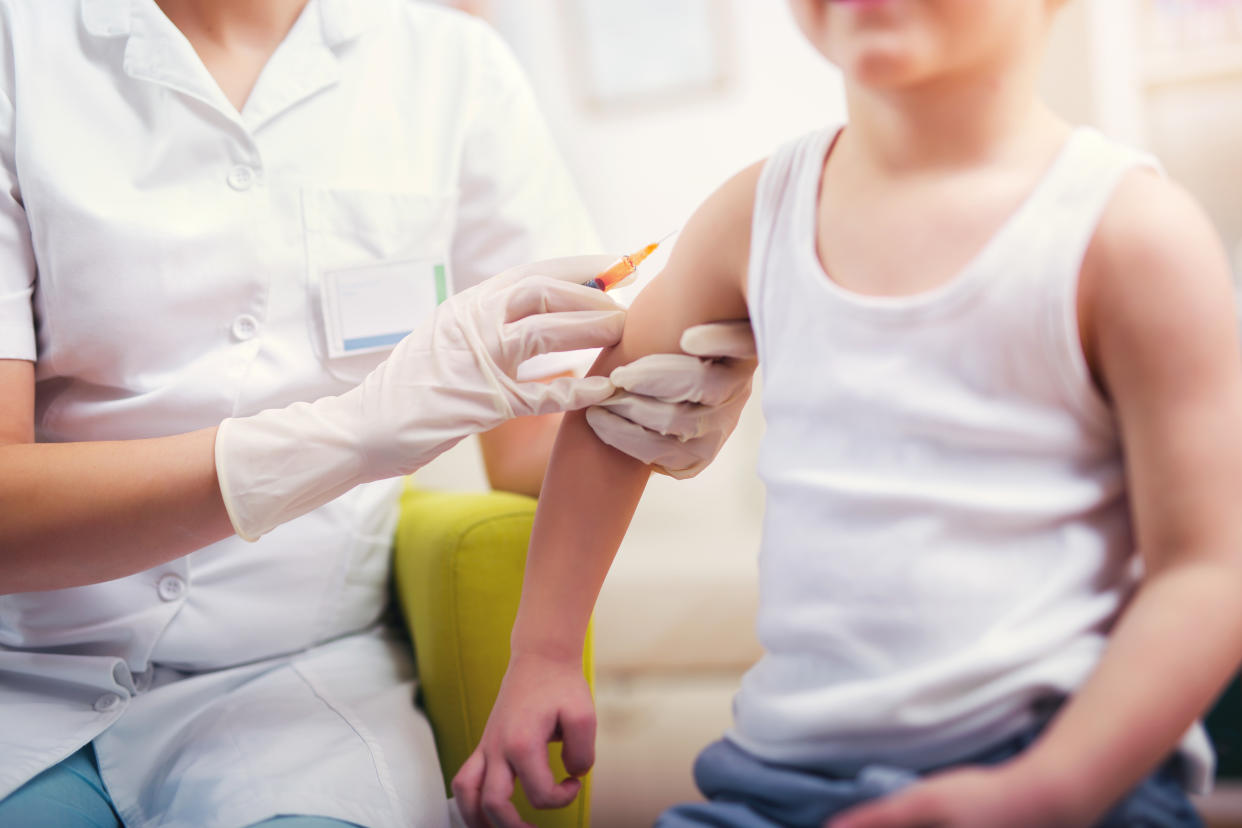Washington state bill to ban 'philosophical' vaccine exemptions moves forward

Washington state is embroiled in an ongoing battle over the fate of vaccine exemptions. As of Friday, a bill is one step closer to passing that would ban “a philosophical or personal objection” as a reason for a parent not to have a child receive the measles, mumps and rubella vaccination.
The bill passed through the state’s Health Care and Wellness Committee on Friday, which is an early stage in the process. All nine Democrats on the committee supported the bill, as did one Republican, the bill’s sponsor, state Rep. Paul Harris. Molly Solomon, the southwest Washington bureau chief for Oregon Public Broadcasting, tweeted that Harris had been personally attacked for his role in the bill. She quotes Harris as saying, “I was accused of being a baby killer and that I would go to hell for this bill.”
Rep. Paul Harris from Vancouver is the only Repub on the Health Care and Wellness Committee to vote for the bill. His district has 53 measles cases. He says his faith has been personally attacked: “I was accused of being a baby killer and that I would go to hell for this bill.” https://t.co/JDWSLWEzqU
— Molly Solomon (@solomonout) February 15, 2019
Washington is one of only 17 states that allow for philosophical exemption of the MMR vaccine. Because of these exemptions, the state now finds itself in the midst of a measles outbreak, with 54 cases so far and a state of emergency declared in January by Gov. Jay Inslee. Measles was declared eliminated in the United States in 2000, but due to a rise in vaccine exemptions, it is back.
“I’m confident we can do something to make sure that we are keeping our communities safe,” said Rep. Monica Stonier, who joined Harris in championing the bill.
Now that the bill has passed the Health Care and Wellness Committee, it will move on to the House Rules Committee and then to the full chamber. The bill, and the question over vaccinations, has split opinions in the state, and hundreds of anti-vaxxers rallied in protest of the bill last week.
With more than 50 cases of measles in Washington State, lawmakers proposed a bill Friday that would ban vaccine exemptions for philosophical reasons, causing backlash among "anti-vaxxer" parents. @carterevans reports https://t.co/B7NQYFvm5J pic.twitter.com/qGo1Oq7tCD
— CBS Evening News (@CBSEveningNews) February 8, 2019
In Clark County, Wash., where the measles outbreak is centered, an estimated 6.7 percent of students did not receive the MMR vaccine due to exemption. This is far higher than the national exemption rate of 2 percent, as estimated by the Centers for Disease Control and Prevention (CDC). The CDC considers the vaccine 97 percent effective.
Read more from Yahoo Lifestyle:
‘Hand Jobs’ salon is causing controversy for its suggestive name
Boy, 11, arrested after refusing to recite ‘racist’ Pledge of Allegiance
Follow us on Instagram, Facebook and Twitter for nonstop inspiration delivered fresh to your feed, every day.


